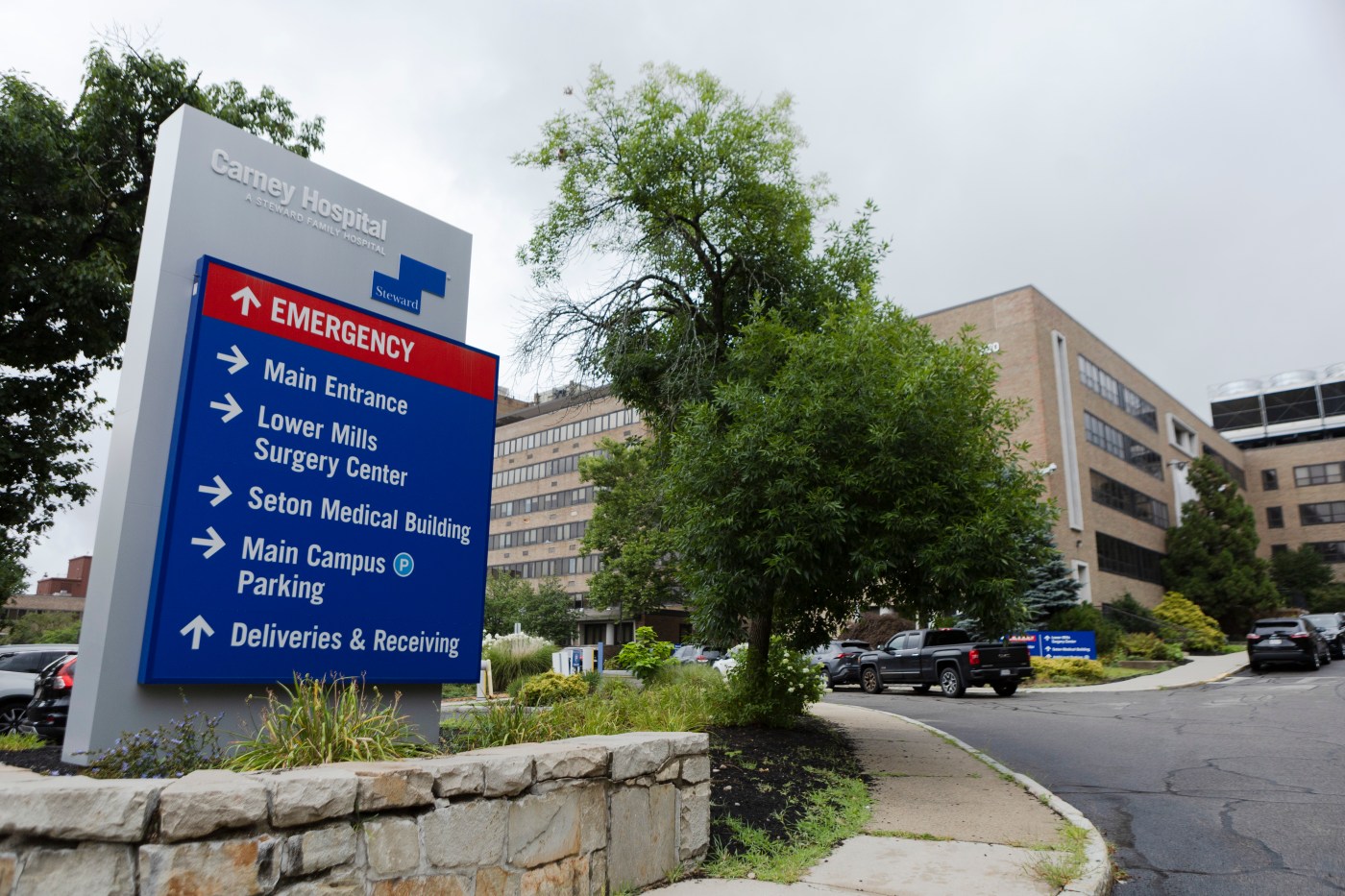
Steward’s Boston, Ayer hospitals doomed, bankruptcy judge rules
A Texas-based federal bankruptcy judge will allow Steward Health Care to shutter the Bay State’s Carney Hospital and Nashoba Valley Medical Center, a decision he stressed he did not take lightly.
Noting he had read and entered into the record the pleas of the Massachusetts Nurses Association, the State’s Attorney General, the Executive Office of Health and Human Services, and considered the 120-day hospital closure notification period required by the Bay State, U.S. Bankruptcy Judge Christopher Lopez said federal bankruptcy laws left him little choice but to allow the hospitals to close.
“Closing one hospital is real – it’s affecting the lives of people who are in there right now,” he said. “The importance of every individual weighs on me, when I’m told there could be life decisions…but from a legal standpoint, the debtors have the authority to close.”
“The debtors are going to be authorized to close the hospitals. The legal standard has been met. My job is to enforce the law. I hope people understand how keeping those hospitals open, based upon the evidence before me, threatens the entire hospital system in Massachusetts,” Lopez said, his voice halting as he struggled to find the right words for such a delicate decision.
With his ruling, Steward will be allowed to close the hospitals by or around August 31, as announced last week.
Lopez said his decision was made with every party’s interests at heart, including the dozens of patients at those two hospitals. However, he said the choice of whether or not to close the hospitals is not his to make in the end, but goes to the “business judgment” of Steward as they attempt to navigate their way through Chapter 11 Bankruptcy proceedings.
The Commonwealth’s recent offer of $30 million to help stabilize the hospitals for another month, Lopez said, couldn’t even enter into his decision making process, as the state chose to withhold the funds until steps were taken by Steward to lock in the bids placed on their remaining Massachusetts facilities and certain other agreements made.
A hearing on the money was to take place on Wednesday, along with the hospital closure hearing, but has been postponed until next Tuesday, Aug. 6.
“There is no funding agreement in place,” Lopez lamented. “I can’t consider the funding agreement and the money coming in because that’s not before me today.”
At this point, Lopez said, he’s not even sure the money would help, considering the “incredible amount of loss that’s occurring on a weekly basis” at the pair of hospitals.
Hugh McDonald, an attorney with Pillsbury, Winthrop, Shaw & Pittman speaking on behalf of the Commonwealth, explained that the Bay State could not just give Steward a fortune in taxpayer’s money without coming to an agreement with them on how the company’s remaining Massachusetts hospitals would transition to new owners, and under what terms the funds could be recouped.
“We have been very frustrated, from the outset,” McDonald said, telling the judge they had met with Steward and its landlords, but hadn’t at any point managed to get all of the people required at the same table to get the deals done.
Without that, the state can’t give Steward an advance on $30 million in MassHealth related payments, he said, and without the parties involved getting together, the state is facing a “public health crisis.”
“We are sitting on eight hospitals that are on the precipice,” he said.
The judge said he could not order everyone to get into the same room and iron out a deal on the state funding and how the remaining hospitals will be sold, but that every party involved needed to make it a priority.
“It’s clear, from the pleadings, there is a lot of work to be done,” Lopez said.
“Whether there is agreement or not in that meeting, I want the meeting to happen and I want folks in there with — certainly advocate for your clients position, I got it — but we’ve got really sophisticated counsel here, you’ll know what I mean when I say go in there with a mind to get something done,” he said, encouraging them to “turn every rock.”
Lopez asked the ombudsman tasked with monitoring conditions at Steward’s hospitals to report to the court if patient care at any facility slipped before close or sale, saying if he was informed such was the case he would hold a hearing on the matter that day, even very late at night if needed.
“I don’t want those folks forgotten,” he said.
McDonald, clearly picking up on the fact the judge was not pleased to have to close the hospitals, paused before court adjourned to assure him that the Bay State had well prepared for this inevitability and that every single patient would be seen to.
“We share your concern for patient safety,” he told the judge. “It’s weighing on Your Honor, I just want you to know that we have seen this coming, we have prepared for this.”
“We are going to get these patients into safe facilities,” McDonald said.
Gov. Maura Healey’s staff declined to offer a response to the judge’s ruling, pointing instead to comments the governor made earlier in the day during a radio appearance on Boston Public Radio.
“I’m disgusted that we’re in this situation,” Healey said, before placing blame for the problem at the feet of Steward’s mismanagement.
In addition to Carney and Nashoba Valley, Steward owns and operates Good Samaritan Medical Center in Brockton, Holy Family Hospitals in Haverhill and Methuen, Morton Hospital in Taunton, Saint Anne’s Hospital in Fall River, and St. Elizabeth’s Medical Center in Brighton.
Related Articles
‘Callous, corporate greed’: Officials call out Steward Health Care after announced hospital closures
People in the crowd hold signs during the press conference on Steward Health Care closings outside Carney Hospital in Dorchester. (Libby O’Neill/Boston Herald)


